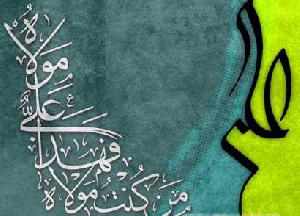 1 vote(s)
1 vote(s)
Today I have perfected your religion and completed my favor upon you, and I was satisfied that Islam be your religion. (Quran 5:3)
When Noah was appointed, he called upon his people and told them: Allah has called upon you to have faith in Him, and to follow His messengers. After me, there shall be a prophet who will bring the complete religion. He is the last prophet that will be sent from Allah.
Abraham, Moses, Jesus… each with different Holy Books, each in different eras, they all came to reveal Allah's message and spoke of the Final Prophet.
As time passed, people around the world were awaiting this Savior, this Final Prophet. At last Prophet Mohammad (PBUH&HP) was sent as the last messenger of Allah. With Him came the revelation of Allah's complete religion. The labor and hardship of all the previous prophets was manifest in this religion.
The Prophet (PBUH&HP) had struggled to create brotherhood and equality in the Muslim community for twenty-three years. We have to take the time of these events into consideration. In the time of slavery and idol worshipping, Mohammad (PBUH) preached of monotheism and freedom. These are two words that are spoken freely today.
Hajat-al-wedaa, the farewell pilgrimage
When the ceremonies of the pilgrimage were completed, the Prophet and his companions left Mecca for Medina. On reaching Ghadir Khum he stopped. Verses of the Quran were being revealed upon him. The Archangel Gabriel came with the following verse in order to impress the urgency of the divine command:
O Prophet! Proclaim what has been revealed to you from your Lord, for if you do it not you have not conveyed His message; and Allah will protect you from the (evil designs of) people... Holy Quran (5:67)
Before this, he had received similar messages, but had not been instructed explicitly as to the time for Ali's (AS) appointment. He had delayed it because of opposition that might occur.
Mohammad (PBUH) was aware of the inner feelings of his companions. He knew that they had made progress, but with their weak faith, he was not sure that they were prepared for his proclamation.
Allah will protect you from the (evil designs of) people. Prophet Mohammad (PBUH&HP) was never frightened by people or anything other than Allah. Even in the battle of Uhud the prophet fought until the last moment and feared no one. He was brave and courageous as all the other prophets before him were. In this ayah, Allah is telling the prophet to ignore the unawareness of some of the people, just as he told Moses:" Do not fear, you are the winner."
Again, Gabriel was ordered to reveal to Mohammad (PBUH&HP) the same verse. This happened once more. After the third time, the Prophet ordered the whole party to be assembled, even summoning back those who had already left, for he had an important message to be delivered.
Then the Prophet gave a long sermon. He praised Allah and spoke of different issues…
He then called out: "Am I not more precious to you than your own lives?" They said, "Yes!" It was then that he took Ali's (AS) hands and raised them so high that he showed the whites of his armpits, and said, "Whoever has me as his master has Ali (AS) his master. 0 Lord, be a friend to his friends, and enemy to his enemies. Help those who assist him and frustrate those who oppose him."
Immediately after the Prophet finished his speech, the following verse of the Quran was revealed:
Today I have perfected your religion and have completed my favor upon you, and I was satisfied that Islam be your religion. (Quran 5:3)
After that, those that were present came to Ali bin Abi Talib's (AS) tent and congratulated him on his new position. They addressed him as their Mawla and master.
Was the religion of Islam complete if the question of leadership was unclear? The above verse clearly indicates that Islam without clearing up the matter of leadership after the Prophet was not complete. The true completion of Islam was due to the announcement of the Prophet's immediate successor.
Elaboration of the above verse
The term "al-Yaum" meaning today, is usually used in very important cases in the Quran. Its use at the beginning of the sentence is also significant.
The phrase "completed my favor upon you" has many implications, only one of which we will discuss. What do favor and blessings refer to? It can't mean tangible blessings because of the verb tense. We are even now blessed with many materialistic favors. So, could it have a deeper and more important meaning?
When we examine the Quran to see what the highest blessing is, we notice that Imamat is higher than any favor or other blessing known. A term used to describe its greatness is used in the Quran. (3:64 and 28:5) Mennah refers to something so great that understanding and perceiving it is difficult.
Prophecy and Imamat are the greatest blessings to mankind. In this verse, Imamat is referred to as a favor. With "I completed my favor upon you" the prophecy of Muhammad (P.B.U.H.) is complete; there are no prophets to come after him. In the same way, the Imamat of Ali (AS) and his children has also been completed; there are no successors after them.
The enemies of Islam said: "We were awaiting the prophet's death. We can overrule the Holy Book and all of the rules and regulations of Islam, but we can not oppose a strong leader." The great event of Ghadir-e Khum explains to us that with out a commander in chief, all that the prophets have worked for could have easily been destroyed. Therefore, the true completion of Islam was due to the announcement of the Prophet's immediate successor.
By appointing Imam Ali (AS), Allah has shown the best path to the people of the world and Islam was completed.
Eid Ghadir, also known as Eid-ul-Akbar, is one of the few historic events that all Muslims agree upon. Seyyed Mortaza writes that there is not any Islamic group that does not agree upon the actual event of Ghadir Khumm.
Masood ibn Nasser Sajestani in the book Velayatkade, which is printed in seventeen volumes, narrates this event on the authority of one hundred twenty people.
Mohammad bin Jarir Tabari in the book Radde Alaa Al-Kharghoosiah, narrates the event of Ghadir Khumm from seventy-five different paths.
Al-Ghadir by Allameh Amini is the most general and complete encyclopedia for narrations about the Ghadir event.
Reference: [Tafsir al-Mizan, Al-Ghadir by Allame al-Amini, Hagh al-Yaghin by Allame al-Majlesi, Articles by Ayatollah Javadi Amuli]
